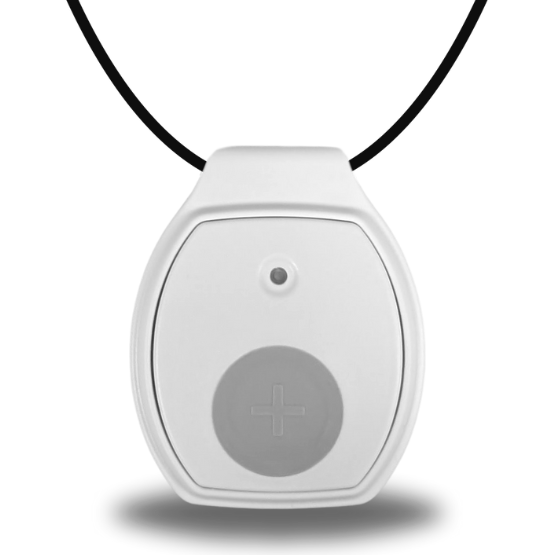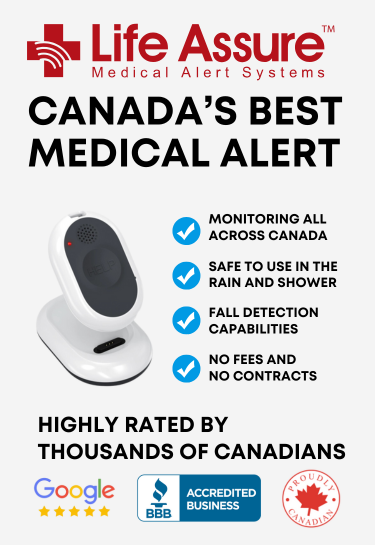Health Insurance for Seniors: How to Make the Most of Your Plan
Health insurance is one of the most vital weapons in the medical expense management arsenal for seniors. With the elevating healthcare expenditure, the myriad of options in senior health insurance can become baffling.
But if you understand your plan and make informed decisions, then you'll end up maximizing the benefits and have better peace of mind.
This guide provides practical tips for seniors on how to best use their health insurance: how to select a plan, how to use Medicare benefits, and how supplemental options such as Medigap can be helpful. Knowledge is power, so make your health insurance work for you.
Life Assure Product Quiz
Find The Perfect Medical Alert Device
Take our 30 second quiz and discover which Life Assure medical alert device is the right fit for you or a loved one.
Life Assure Product Quiz
Find The Perfect Medical Alert Device
Take our 30 second quiz and discover which Life Assure medical alert device is the right fit for you or a loved one.
Tips on making the most out of health insurance for seniors
To extract the maximum benefits of health coverage, elderly people should weigh each coverage option carefully under their consideration. The most in-depth utilization of preventive services, telemedicine, and digital health tools can further enhance healthcare management.
A continuous review of insurance plans further guarantees that one's coverage remains properly balanced with changing health needs and financial goals.
Below, we’ve discussed some practical tips to help seniors make the most of their health insurance plans.
Know the Health Insurance Options for Seniors
A number of health insurance for seniors are at their disposition in the Canada. Medicare is a Federal health service for residents of 65 and older.
It has Parts A, B, C, and D; and these parts represent hospital coverage, medical services, prescription drugs, and Medicare Advantage, forming a type of bundled insurance.
Some programs are employer-sponsored retiree programs, which are provided by the seniors’ employers or the company they worked at.
Combining such plans with the already existing schemes can enhance your overall insurance benefits. It is like using multiple coupons together to get maximum benefits.
Knowing one's options gives a better chance to make an informed choice that ensures a strict balance between healthcare needs and affordability for the senior members of society.
Choose the Best Plan
Optimal health insurance plans are key for seniors in the U.S. as they need to conveniently meet their medical needs. Some popular and highly-rated options include:
Medicare Advantage plans (Part C): Provided through private insurers, these plans provide extra healthcare benefits and options targeted to a specific healthcare issue that might not be covered fully in the government schemes.
Medigap (Supplemental Insurance): Some examples are Mutual of Omaha and Cigna. They help with copayments, coinsurance, and deductibles that the original Medicare doesn't pay, and they might save you money. They basically fill in the gaps left by the primitive schemes.
Blue Cross Blue Shield Senior Plans: These plans are exceptionally available and offer vast networks and tailored national benefits for seniors.
Kaiser Permanente Medicare Plans: Characterized by high customer satisfaction, these plans provide integrated health services and insurance for more convenience.
The best plan for seniors will have to be the one that best serves their medical needs and is at par with their financial goals in terms of coverage, costs, the network of providers, and public ratings.
Understand Prescription Drug Coverage
Prescription medicine bills can make a big dent in seniors’ healthcare budgets; thus, it is important to understand the prescription drug coverage options involved.
While coverage for prescription drugs varies, medication is designed primarily for people who are on Medicare Part D.
One can join a standalone Part D plan or choose a Medicare Advantage to get coverage for drugs. There can be variations in coverages provided, like premiums, deductibles, copayments, or formularies; therefore, it is wise to compare the options given upfront.
When looking for a plan, check that it provides the medications that you need at the right prices. It might also help to check out generic medicines, mail-order drugs, or pharmaceutical assistance programs for such use.
This kind of knowing would prevent you from ending up bearing costs you had not expected, as well as help you take most of your benefits.
Use Medicare to Your Advantage
Medicare is the bedrock of health insurance for elderly Canadians, and they will need a strategy to maximize their gains.
Fundamentally, first and foremost, learn the four basic areas: Part A (hospital insurance), Part B (medical services), Part C (Medicare Advantage), and, of course, Part D (prescription drugs).
These parts will ensure comprehensive coverage. Enroll in Medicare Advantage plans for bundled benefits such as vision, dental, hearing, and fitness programs. Use in-network providers under Medicare Advantage to limit your payment.
If you are eligible, look into Medicare Savings recommendations and "Extra Help" propositions to assist you in covering premiums and prescription drug costs.
Lastly, you should make the best of annual open enrollment through a review and tinker with the plan to suit your healthcare changes over the recent year. These steps should help seniors get the most out of their Medicare coverage while managing their healthcare expenses better.
Use Telemedicine and Digital Health Tools
Telemedicine and digital health tools are revolutionizing accessibility in health care for seniors, making it easier to manage health conditions from the comfort of home.
Most Medicare and supplemental plans now cover telehealth visits, enabling seniors to connect with doctors, specialists, or therapists through video calls or by phone.
Telehealth becomes especially handy for the check-ups and management of chronic conditions or when advice about minor complaints is needed, and an in-person visit isn't necessary.
Digital health tools, such as fitness trackers and mobile health apps, help in vital sign recording, medication reminders, and fitness monitoring. Such tools allow seniors to take active control of their health while sharing important data with health providers.
All this will be of no use if seniors don't contact their insurance plan to ensure coverage for the telehealth service or check for digitally compatible tools to aid prosperity in their overall medical experience.
Conclusion
Seniors can explore several opportunities to best manage their healthcare. Familiarizing themselves with the basic knowledge of health insurance for seniors like Medicare and supplemental plans such as Medigap can enhance their overall coverage.
Periodically reviewing their health insurance ensures enhanced satisfaction with the program. Thus, staying informed and vigilant is the surest way to maximize their benefits and secure their health and financial well-being.











 Get Help With The Push Of A Button
Get Help With The Push Of A Button















